Vital Signs:
Worthy of note:
Honors, awards,
appointments, etc.
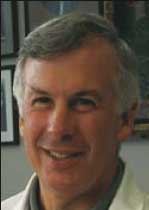
James Weinstein, D.O., a professor of orthopaedics and of community and family medicine, was named chair of the Council on Academic Affairs of the American Academy of Orthopaedic Surgeons. The world's largest medical association of musculoskeletal specialists, it has more than 27,000 members.
Pamela Rowland, Ph.D., a research associate professor of surgery, received the Outstanding Teacher Award from the Association of Surgical Education.
Thomas Ward, M.D., an associate professor of neurology, recently received the Arnold P. Friedman Distinguished Clinician Research Award from the American Headache Society.
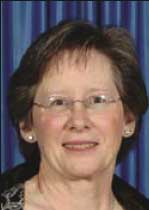
Suzanne Beyea, R.N., Ph.D., an associate professor of community and family medicine and the director of nursing research at DHMC, received the Outstanding Achievement in Perioperative Nursing Research Award from the Association of periOperative Registered Nurses (AORN). Annually, AORN selects one researcher nationwide as a model of excellence in perioperative nursing research. Beyea oversees consultation, education, and assistance to nurses in both inpatient and ambulatory settings in order to support evidence-based nursing practice at DHMC.
Robert Dunton, M.D., an assistant professor of surgery, received the John H. Gibbon Award from the American Society of Extracorporeal Circulation. The award recognizes outstanding contributions to perfusion technology.
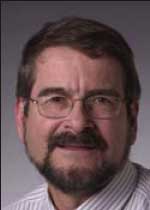
Gregory Holmes, M.D., a professor of medicine, was appointed second vice president and president- elect of the American Epilepsy Society. He also recently received the American Electroencephalographic Society's Hans Burger Award, which recognizes teaching, research, and clinical care.
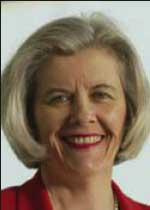
Nancy Formella, M.S.N., R.N., senior nurse executive at DHMC, received the annual Leadership Award from the New Hampshire Nurses Association. The organization's president, Susan Fetzer, called Formella "a pathfinder with a compelling vision and mission." Formella's nomination came from several members of the DHMC nursing staff.
William Petty, M.D., an instructor in medicine, received the Young Investigator Award from the American Society of Clinical Oncology.
Charles Mannix, J.D., is DMS's new associate dean and chief operating officer; he was previously vice president for executive affairs of the Uniformed Services University of the Health Sciences. He succeeded Adam Keller, who is now Dartmouth's executive vice president for finance.
Woomera Therapeutics, Inc., a company that was cofounded by William North, Ph.D., a professor of physiology, won the grand prize at the 2004 New Hampshire Business Plan Competition. Woomera develops detection methods and therapies for breast and small-cell lung cancer.
Six faculty members received
the DMS Dean's Faculty Awards,
recognizing excellence in five
different areas. The Senior Faculty
Award went to Barry Smith,
M.D., (pictured below) a professor
and chair of
obstetrics and
gynecology. Junior
Faculty
Awards were
presented for
basic science
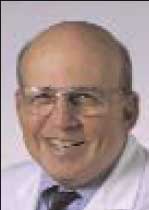 to David Robbins,
Ph.D., an assistant professor of
pharmacology and toxicology,
and to Surachai Supattapone, M.D.,
Ph.D., an assistant professor of
biochemistry; for translational
science to Michael Spinella, Ph.D., an
assistant professor of pharmacology
and toxicology; for teaching
and clinical care to Douglas Goodwin,
M.D., an assistant professor of radiology;
and for clinical investigation
to Pamela Jenkins, M.D.,
Ph.D., an assistant professor of
pediatrics. (See page 64 for more
on the junior faculty winners.)
to David Robbins,
Ph.D., an assistant professor of
pharmacology and toxicology,
and to Surachai Supattapone, M.D.,
Ph.D., an assistant professor of
biochemistry; for translational
science to Michael Spinella, Ph.D., an
assistant professor of pharmacology
and toxicology; for teaching
and clinical care to Douglas Goodwin,
M.D., an assistant professor of radiology;
and for clinical investigation
to Pamela Jenkins, M.D.,
Ph.D., an assistant professor of
pediatrics. (See page 64 for more
on the junior faculty winners.)
Trisha Noreault and Kristina Wolf, both Ph.D. students in pharmacology and toxicology, received travel awards to attend a Society of Toxicology meeting.
Kristina White, a Ph.D. student in pharmacology and toxicology, won the Outstanding Student Abstract Award at a New England Pharmacologists meeting.
Andrea Henry, director of volunteer services at DHMC, was the recipient of the state of New Hampshire's 2004 Peg McGarity Award for Outstanding Volunteer Management.
Best Doctors, a national medical information company, included 107 Dartmouth Medical School faculty members in its "Best U.S. Doctors of 2004" listing.
In the 2004 U.S. News & World Report ranking of the country's 125 medical schools, Dartmouth Medical School was ranked 34th. The rankings are based on total research funding from the National Institutes of Health, test scores, student-faculty ratios, and reputation.
Dartmouth-Hitchcock Medical Center received the 2004 Environmental Leadership Award from Hospitals for a Healthy Environment. The award recognizes programs to reduce waste, eliminate mercury, and minimize the use of toxic products and practices.
And last (but far from least) Dartmouth Medicine has an honor of its own to report this issue: the magazine's associate editor, Laura Stephenson Carter, was the recipient of the Will Solimene Award of Excellence in Medical Communication from the New England chapter of the American Medical Writers Association. (See page 2 in this issue for more about this award.)
If you would like to offer any feedback about this article, we would welcome getting your comments at DartMed@Dartmouth.edu.
